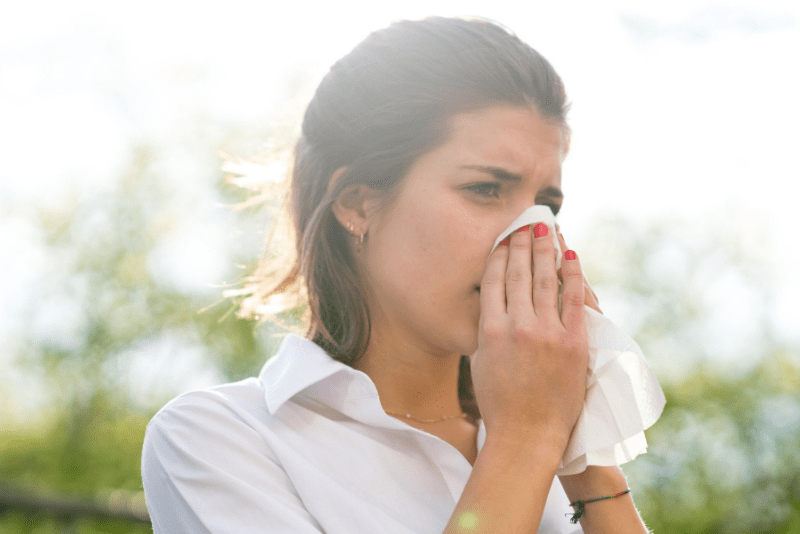If you have allergies, you likely know it. Sneezing, sniffling, itchy and watery eyes, the symptoms are sometimes overwhelming. Your immune system controls how your body defends itself and it overreacts to allergens you’ve inhaled, touched or ate. For example, if you’re allergic to dogs, your immune system identifies dog hair or dander as an invader. Your immune system produces antibodies called Immunoglobulin E (or IgE). These antibodies travel to cells that release chemicals, causing an allergic reaction. These reactions can range from annoying sniffles to a life-threatening response called anaphylaxis.
If you’re experiencing symptoms, but aren’t sure why or what’s causing them, allergy testing may be needed. Symptoms that usually prompt testing include:
- Respiratory – itchy eyes, nose or throat; nasal congestion, runny nose, watery eyes, chest congestion, cough or wheezing
- Skin – itchiness or eczema
- Abdominal – vomiting or cramping and diarrhea consistently after eating certain foods
- Severe reactions to stinging insect stings (other than swelling at the site of the sting)
- Anaphylaxis (pronounced an-a-fi-LAK-sis): a serious allergic reaction that affects many parts of the body at the same time
Allergy tests are the best and safest way to tell exactly what triggers your symptoms. The most common triggers include dust mites, animal dander, mold, pollen, insects, foods, latex and drugs. An allergist/immunologist can perform multiple types of allergy tests.
- Skin tests: This is the most common kind of testing done in the allergist’s office. In this test, a small amount of allergenic liquid is placed on your skin and this area is pricked or scratched. Redness and swelling at a testing site tells us you are allergic to the tested allergen. It is generally not much more bothersome than a bug bite. The results of this test are ready in minutes, so you leave the office knowing what you are allergic to.
- Intradermal tests: Intradermal tests are more sensitive than prick tests and may be used when prick test results are inconclusive. In this test, a very small amount of the sterile testing liquid will be injected just under the surface of your skin, similar to a TB test. The results are available in minutes.
- Challenge tests: Challenge tests are sometimes used when a doctor suspects you have a food or drug allergy. In this test, a patient will eat or inhale a very small amount of the possible allergen under the close supervision of a board-certified allergist. The amount is gradually increased over several hours to ensure a full serving or dose can be tolerated. This type of test should only be done by a board-certified allergist with experience treating anaphylaxis. For your safety, do not try this test at home!
- Blood tests: For this test, blood is drawn and then tested for allergies. This test is more expensive than skin testing and it takes longer to receive your results. Interpretation of this test should be done by a board-certified allergist as a positive result does not necessarily mean the patient is allergic. It is best understood in conjunction with an extensive allergy history and skin test. Unlike skin testing, blood allergy testing can be done when patients are still on oral antihistamines.
Many people with untreated symptoms aren’t aware of how much better they will feel once they are properly diagnosed and their symptoms are managed. We are here to help you breathe better, feel better and live better!
Give us a call or request an appointment online to begin your allergy treatment plan with one of our amazing board-certified doctors!




